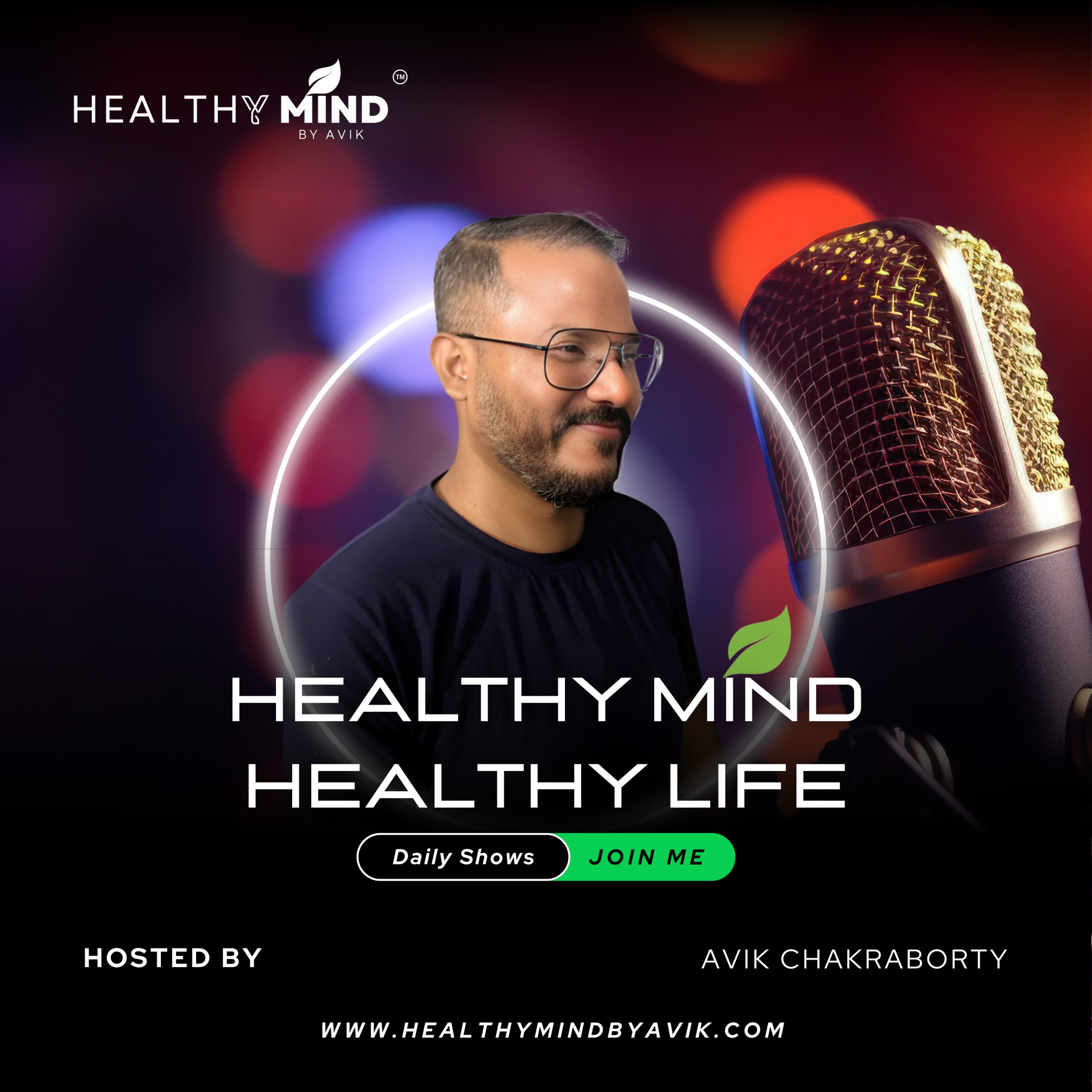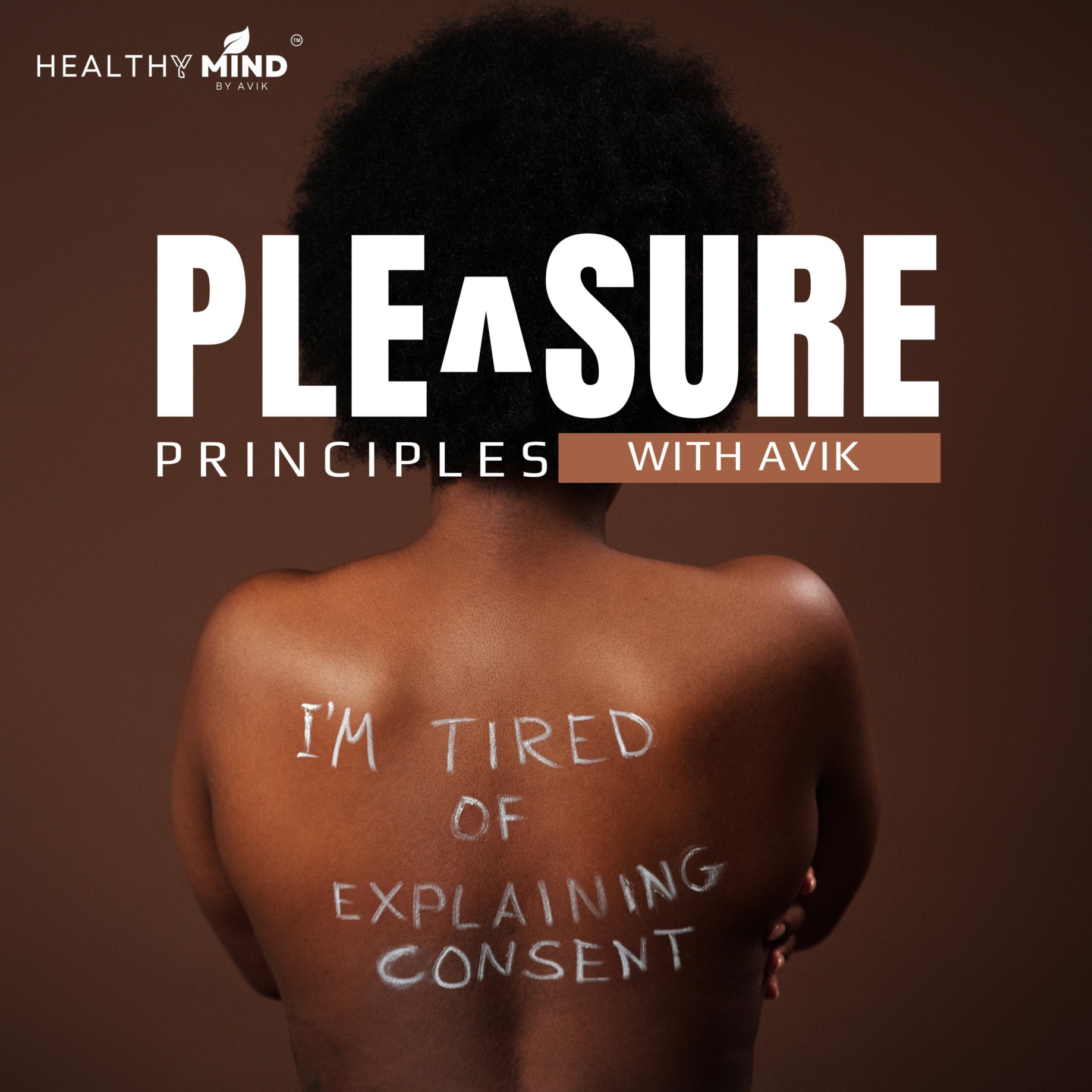.jpg)
Mind Over Masculinity
Let’s stop asking men to "man up" and start asking how we can lift them up. After all, mental health is not just a women’s issue or a men’s issue—it’s a human issue.
Take the first step today. Talk, listen, and advocate. Together, we can make a difference.
Mind Over Masculinity
Breaking Free: Redefining Masculinity and Mental Fitness - Arnold Beekes
Are societal expectations holding you back? In this engaging episode, we tackle the challenges many men face today regarding masculinity, vulnerability, and mental fitness. Our special guest, Arnold Beekes, an authority in brain fitness, shares his compelling journey filled with insights on how men can break free from toxic conditioning that suppresses their true selves. Have you ever felt the pressure to conform? Together, we’ll explore the impact of upbringing and societal norms on identity and emotional well-being.
Anil discusses the critical concept of brain fitness, equating emotional expression with mental health and resilience—arguing that vulnerability is genuinely a form of strength. The conversation also offers actionable tips for men to connect with their emotions, recognize mental straitjackets, and foster a life of authentic fulfillment.
Throughout the episode, listeners are invited to contemplate their emotional habits and discover practical exercises that can lead to profound personal transformation. By the end, you’ll understand that real strength begins from within and that embracing your individuality can pave the way for a richer, more meaningful life. Don't miss this opportunity to join the conversation, break free from the confines of outdated masculinity, and redefine what it means to be a man.
Remember to subscribe, share your thoughts, and leave a review! Your journey towards mental wellness can inspire someone else. Join us on this path of self-discovery and embrace the strength that lies in vulnerability.
Automate Social Media Post
Make Short Clips From Long Videos
Loved by 4M+ marketers, entrepreneurs & creators
Create and translate videos
Create and translate videos with HeyGen's AI Video Generator
Buzzsprout Podcasting
Disclaimer: This post contains affiliate links. If you make a purchase, I may receive a commission at no extra cost to you.
-----------------------------------------------------------------------------------------------------------------
Want to be a guest on Mind Over Masculinity? Send me a message.
-----------------------------------------------------------------------------------------------------------------
Stay Tuned And Follow Us!
- YouTube - https://www.youtube.com/@healthymind-healthylife
- Instagram - https://www.instagram.com/podhealth.club/
- Threads - https://www.threads.net/@podhealth.club
- Facebook - https://www.facebook.com/podcast.healthymind
- LinkedIn - https://www.linkedin.com/in/newandnew/
Welcome listeners to Mind Over Masculinity, the show where we challenge outdated notions of what it means to be a man and explore how redefining strength, vulnerability and mental fitness can lead to a more fulfilling life, and mental fitness can lead to a more fulfilling life. I'm your host, sana, and in this space we are tearing down the walls of toxic conditioning and empowering men to discover their authentic selves. And today we are joined by Anil Beekas, an expert in brain fitness, who helps people break free from social street jackets that limit their growth. And Anna's journey of unconditioning the mind is really a powerful reminder that living someone else's life is the ultimate trap and escaping is the ultimate freedom. So if you are ready to reclean your mindlessness, redefine success and embrace who you truly are, let's dive in. So, anil, welcome to the show, and it's an absolute honor having you with us.
Speaker 2:Thank you, shan, I love to be here.
Speaker 1:Always, always so, anil, you often talk about people living someone else's life due to societal conditioning. How did your early experiences of conformity, particularly growing up with a military father, shape your understanding of this concept?
Speaker 2:In a huge way. I could argue that it to some extent still influences me, although I have it under my control now. But yeah, I grew up in a family where my father was a military officer Sometimes you're lucky and a military officer. They're different at home, but my father was even more severe at home than he was at his work. So everything, and literally everything, whether it was school, cutting the grass, painting the house, playing my sport, everything had to be done in the way he tells it that it needs to be done and had to become to the highest standards and highest grades and highest scores. If that was not the case, he was angry and, well, he really was not nice. And that influenced not only me but also my siblings and, I guess, also my mother. So that is something which I experienced in a very tough way.
Speaker 2:But many, many more people, if not all people, experience something similar, although, like I say, less severe, but it impacts you. So you're constantly trying to meet the expectations of, in this case, my father. But that did go on, I would say, until I was 25. And I well, even when I started living out of the house and I got my own job and my own income, so I was no longer dependent on him. But that has a huge impact. The way we grow up has a huge impact. The way we grow up has a huge impact, like I say. Well, it could be until you're 20 or 25 or 18. It doesn't matter so much. It is a long part of your life where someone else has a huge impact on the way you behave.
Speaker 1:I agree, I agree. Way you behave, I agree, I agree. Thanks for sharing that, arnold, and thanks for being vulnerable enough to share this. Um, and, and I think what's interesting is that many of us aren't even aware of how much our upbringing defines us until we hit a wall.
Speaker 2:So was there any specific moment, arnold, where you realized that you had to break free from that conditioning. Well, it is the conditioning which everybody starts with your parents, but it's not only your parents, it's the educational system, it is the business slash employee organizational system which wants you to well, basically be an obedient slave or servant, and for a lot of people that continues the rest of your life. So that conditioning it happens at many levels and at many levels at the same time and at many levels at the same time. And for me, the way it changed was that I lost my job, I got into a divorce, my father died and I had no longer a house, so that forced me to do things differently and say, hey, this is not working. I'm going to live my life now and although I tried to meet the expectations of all the other people, but nevertheless, these things happen. So I'm going to live my life and figure out who I am and what I want to do.
Speaker 1:Also, you have worked across industries technology, organizational leadership to psychology and even personal development. Arnold, how did you transition from fitting into corporate roles to now developing this idea of brain fitness?
Speaker 2:Yeah, that is not like with most things. Many people think it was just one bolt from the sky and then you change and then things happen. But it's more like a gradual process where you have one small change, one small change, one small change, and it happens over many, many years and then at a certain point in time you realize like, oh, wow, it's different. So it's for your listeners. And it's never and don't expect that that it's like suddenly you wake up and you know I'm going to dedicate my life to brain fitness. No, it was not like that. I had been coaching people for 50 years, so I know what people's limitations and how to help them with it.
Speaker 2:I had the experience with mental health conditions, with, well, the people who worked for me in my family. I took care of my mother with dementia and Parkinson's. My sister had depression, dementia and Parkinson's. My sister had depression. So, yes, there was a moment when I realized that the mental health care is not a mental health care, it's mental sick care, it's mental illness, it's focus on disorders, which is totally wrong, I think, and there was literally. Well, there was a moment, but the moment is a result of years of work and study and the reason was I went with my sister to discuss with the psychologist about the way they were treating her for the depression and actually it got worse because of the treatment there. Instead of that it's supposed to improve.
Speaker 2:And I was on my bike as I'm from the Netherlands, you're biking. So I was on my bike on the way home towards my mother with dementia. So I had this mother with dementia which I had been taking care of for years. I had my mother with dementia which I had been taking care of for years. I had my sister with depression and I realized, like you need to work on prevention, you need to work on optimization, because the moment you are in this mental sickness system, there is not much good news for you and there's no way of getting out of that system. Sometimes those are exceptions. Things can improve a little bit, but it cannot. So that's when I realized like hey, we do body fitness, but why don't we work on brain fitness?
Speaker 1:I'm going to hear me Arnold.
Speaker 2:Yeah.
Speaker 1:Yeah, yeah, I'm so sorry, there was a tech issue in between. Also, what exactly you know now we have talked about your personal journey what exactly is brain fitness and how does it help people, especially men, break free from mental and emotional straitjackets to unlock their full potential?
Speaker 2:Yes, thank you for the question. Brain fitness is a state of optimal physical and psychological well-being in which an individual uses his uniqueness, learns continuously, deals with challenges of life and contributes to people and planet.
Speaker 1:Also, can you share any practical exercise or habit that our listeners could start using today to improve their brain fitness?
Speaker 2:Well, as this podcast is targeted at men and dealing with their masculinity, one of the main things where men can and I hope they will do it to work on is to express their emotions. As men, we are taught and most likely from a very young age you're taught not to express your emotions.
Speaker 2:Well, everybody knows the expression men don't cry yeah when you fell off your bike or you hurt whatever, you're not supposed to cry and you're not supposed to be angry and you're not supposed to be sad and all the emotions we're there. Especially those emotions, men are expected not to express them. So from a young age we've been taught to suppress those emotions. And connect that with what I said in the beginning is like we've been conditioned for the first 20, 25 years of our life. If you have been for 20 years suppressing your emotions, it becomes such a habit that you don't realize that you're doing it.
Speaker 1:Thank you Exactly.
Speaker 2:And it's become so natural that even if you ask people, are you suppressing your emotions? They don't know. Know that even if you ask people, are you suppressing your image, they don't know and and probably they will say no, because, well, that is a habit of 20 years and 20 years is the minimal, because if I talk with someone who's 40 or 50, it's, it's even a longer period. So what I would like to suggest to you is start and it's a discovery process is like. Number one is when are you realize when you are suppressing your emotions? The second one is start to what is that emotion trying to tell me, what is the message behind it?
Speaker 2:Emotions are like data, but if you don't listen to the data, you don't know what's going on. But that is a learning process, a learning process of a new habit which you got to build. So it's not something which, oh, I'm going to do that as of tomorrow. That is a process and most likely in the beginning you realize maybe a day later it's like, oh, I suppressed something. Again, I was angry, but I suppressed it. And then, if you do it more and more, you notice it more quickly and you can deal with it and you start to become more healthy and a lot of people will like you much more because you are more real.
Speaker 1:True, true Makes sense, and you describe society as a place where fitting in is the holy grail. But fitting in can feel comfortable and safe. How do you motivate people to leave that comfort zone and face the discomfort of change?
Speaker 2:I agree that when you are young it feels safe to be the same as everyone else. Yeah, then it is fitting in. You don't want to look strange, you don't want to be weird, I like the students in your class or the girls in your ballet dance thing. It's like so in the beginning, like, hey, I do all my best to be the same because I I don't want to look exceptional. That is now in social media, like multiply to 104.
Speaker 2:But that doesn't mean that, although it might sound safe and nice, that it is good for you and that it helps you, I would say it's the contrary. That is why, if you grow over time, when you are beyond your 20s and your 30s and your 40s, 50s, a lot of people start to realize that living someone else's life which is another definition of fitting in, because you live the life of your parents, teachers, bosses is extremely unhealthy and is extremely detrimental to your mental and emotional and spiritual health as well, that you start to escape from it. And how do people escape? Most likely it's alcohol, or it's gambling, or it's shopping or it's porn. Those things take over your life.
Speaker 2:Because you say, well, it's not consciously that you're reading a lousy life, but you want to escape it and then you use all those matters, those activities to escape from that life and those become habits every day. Or you smoke 20 cigarettes a day, or you use an app to gamble, to bet, and so it's something. Why are you doing that? If your life would be beautiful and nice and you would be totally fulfilled, you wouldn't need those distractions. You wouldn't need those distractions, you wouldn't need those escapes. So I could even turn it around and say the number of unhealthy distractions or addictions which you have is an indicator of how the fitting in is working out for you.
Speaker 1:Some valid insights, anand. And how does all this help in improving health, performance and creativity? You know, when you see someone achieve that growth, what changes first? Do they start performing better or does their growth what changes first? Do they start performing better or does their well-being improve first?
Speaker 2:It is first your well-being. If you like being Shreya, if you like being Arnold, if you are okay with yourself, instead of only criticizing yourself. Right, we all have that inner voice, but most likely your inner voice is an inner critic and we should change it into an inner cheerleader, say, hey, I did something nice, I did something good, I feel good. And when you feel good about yourself, it's easier to relate to other people, it's easier to perform, it's easier to do things because you love it, you like it and it suits who you are. So it is the main thing I teach people is to live from the inside out instead of from the outside. In.
Speaker 1:Right, that's right. That's right. And when we talk about men's mental health, men often face societal pressure to suppress their emotions and prioritize toughness over vulnerability, as you mentioned initially, and it can lead to mental health struggles going completely unnoticed. So how can brain fitness help men unlearn these harmful patterns and develop healthier mental resilience?
Speaker 2:Well, that is where I have developed a training which is a 15-week training program. It's 15 sessions of 90 minutes and well, it's only one session per week where you get homework and you get to work on these things. I also have specific masterclasses. Those are around specific topics like emotions, and I think that's one of the most important thing for men is to learn to listen to your emotions and to deal with your emotions. And I think it's important to stress what you just said, sana. It's like, because we don't know that we are suppressing our emotions, it doesn't mean it doesn't do anything to your body. It has a very negative impact. There's even a specific book about it that by not knowingly suppressing, maybe, traumas or negative experience throughout our life and we might say, no, no, I get no problem with it, I'm totally fine with it, but by not recognizing it, it sooner or later might pop up with cancer, heartache, depression, whatever, and you're like I have no clue where that came from heartache, depression, whatever, and you're like I have no clue where that came from. So it's really, really important to start to learn who you are and what you like and want. And another metaphor I like to use is there were.
Speaker 2:Well, it's already half a year ago, the Olympics in Paris, how many of the gold medal winners were wearing a straitjacket? And obviously you would say, arnold, that's a stupid question. Nobody is. Yes, nobody is, nobody is. But why are you? I have identified 33 different straitjackets mental, emotional, spiritual, physical, environmental or social. I had all of them. And if you, if you remove over time, you remove those straitjackets, you can become an Olympic champion, an Olympic champion even in gardening, in cooking, in hosting podcasts. It doesn't matter. If you remove straitjackets, that is when you can be free, that is when you can perform, yes, so that is the crucial aspect wow, oh, I don't.
Speaker 1:This could be a perfect conclusion to this conversation on straight jackets and and, of course, if our listeners would wish to connect with you and dig up your programs, how they can do that.
Speaker 2:It's very easy, sana. I have a website called braingymfitness where they can join the training programs. They can buy the masterclasses and even if you say, well, I still don't know what to do, what steps to take. There's a link to my agenda. They can book a free meeting with me.
Speaker 1:Lovely, lovely. We'll have the details in the show notes. And, anil, thank you so much, so much for reminding us that mental resilience is not about suppressing who you are. It's about freeing your mind from the expectations holding you back, sharing all the straitjackets. So thank you so much for this conversation, this powerful journey.
Speaker 2:Thank you for, as usual, being a very kind host.
Speaker 1:So, listeners, if you are a man navigating the pressures of fitting in, remember that vulnerability is a form of strength as well, and brain fitness can be your path to self-discovery, better mental health and peak performance. So if this conversation resonated with you, share it with a friend who might need to hear it, and subscribe for more conversations like this, and leave a review to help others find the show. Until next time, take care of your mind, embrace your uniqueness and remember real strength starts within, inside out. Thank you.


.jpg)




